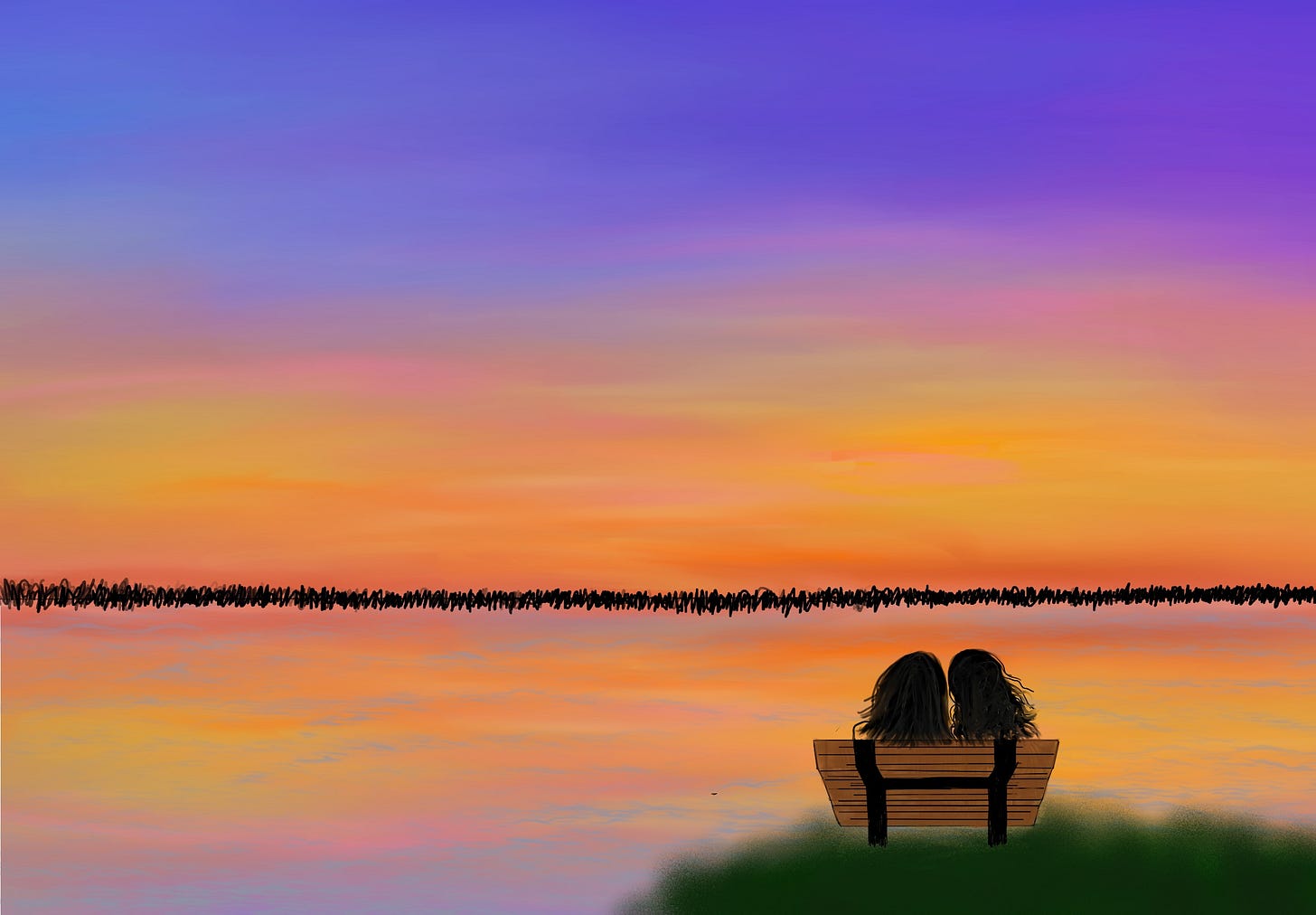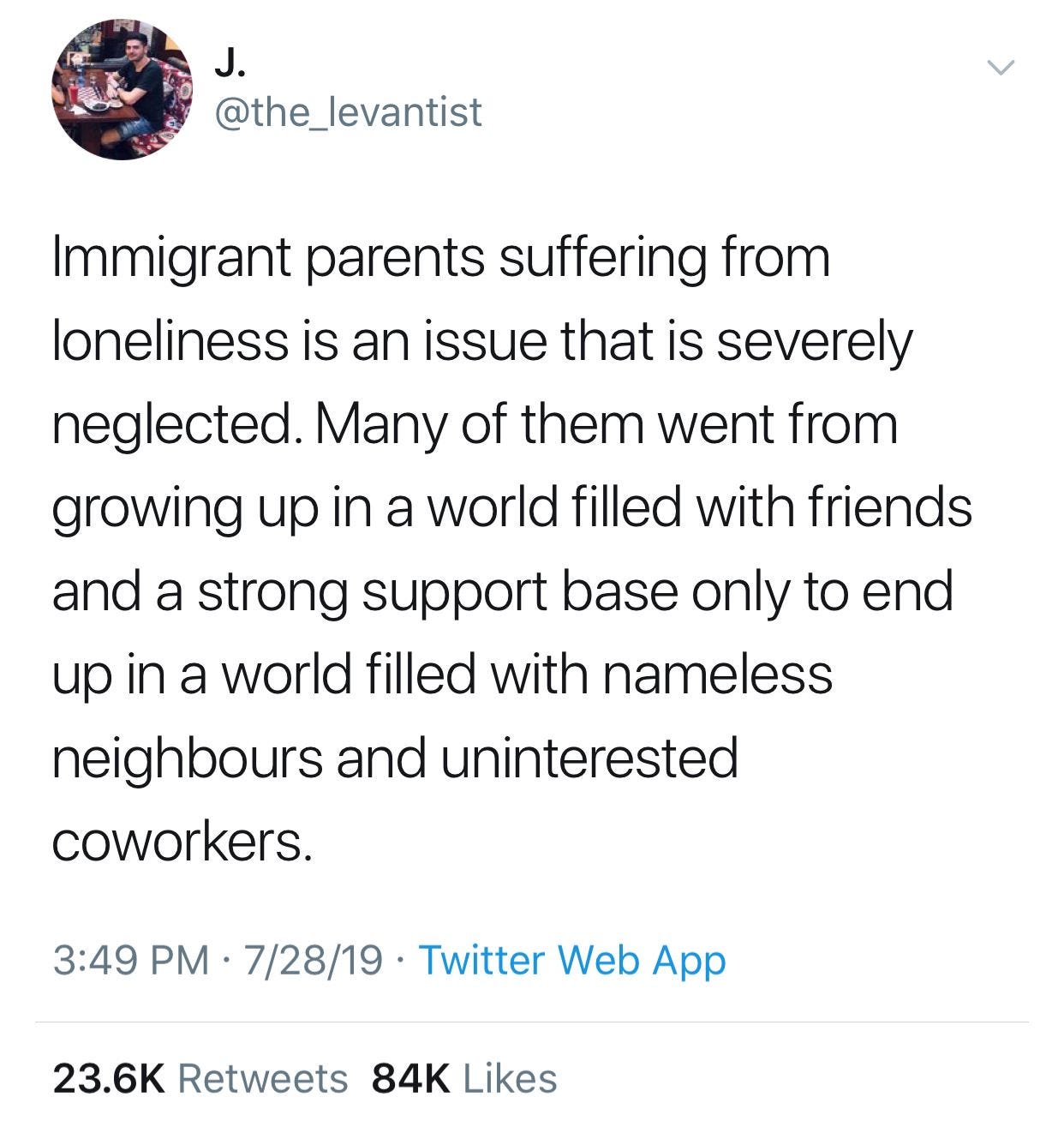My parents and I recently came down with Miss Rona—my second bout of covid was more bearable than the first, albeit still laden with existential nihilism, but at least with copious Kdrama sprinkled throughout (rewatching 5 over the course of 5 days is undoubtedly the most productive I’ll be all year!). That I would be bedridden and forced to do nothing felt like a karmic certainty, given how unceasingly hectic the past month has felt. Between racing towards the finish line of my degree, work, travel, and some sweeping life changes, my body was screaming for relief and routine. I went home to be with my family, Swiffered the floors, watered my mother’s plants, and hovered around my parents like an anxious gnat. I squirmed with the peculiar feeling that I had become a stranger to myself, as I often do when I force myself to stop.
While caring for my parents, I came across a recent piece by the exquisitely talented Jiayang Fan, “A Mother’s Exchange For Her Daughter’s Future,” so tender and honest as to be excruciating, from which I have pulled some particularly poignant words in this post. Fan’s writing about her mother’s final years reads to me like a benediction, a shared, whispered oath you’d have to be the daughter of an immigrant mother to understand. The piece gives voice to how hopeless I felt listening to her coughs, which only seemed to grow progressively more wretched; how desperately I wanted to fold her into me and pour whatever life force necessary into her so she could get better.
How strangely that stream would flow, not forward but in a loop, as the mother became the child’s purpose.
When I reassure my mother that she is aging so gracefully, so beautifully, it is as much for myself as it is for her. I have never been able to shake the premonition that she has traded her health, stamina, well-being for a country in which she would forever feel unmoored, then for children who have leeched life from her so they may grasp at the foothold she has sought. A monstrous wager of who will be first to buckle.
My mother fusses at her crow’s feet and smile lines and I can only think of the history and tenacity etched within them. Her sign is the dragon, the only imaginary creature on the Chinese zodiac, a supernatural being unparalleled in talent and excellence, yet when she laments how her 体力 (tǐlì, “stamina”) and 气 (qì, “vital life force”) weaken with every passing day, all I feel is panic at how I can help her feel stronger so I can spend a little more time with her, learn that much more more from her. How selfish of me to wish she could hold out just a bit longer because there is so much left I want to ask her, to tell her, when she has striven her entire adult life for my sake.
You couldn’t imagine your mother not moving a mountain. The brute, burning force of her striving was its own religion.
A few weeks ago, I sat next to my mother at my brother’s graduation and watched her transform. She looked relaxed and free, as if she were 23 years old again, at the cusp of some new understanding of herself that is so characteristic of fresh grads. She couldn’t have known, right? I think to myself. Of everything that was to come. The vastness and moral barrenness of this country, the work she couldn’t stand, a daughter who once begged for a trendy lavender bag at Target as if she didn’t already have everything her mother could possibly give—her body, her livelihood, her soul.
I would later gift her purses, herbal tinctures, shoes, skincare she would emphatically reject; she would insist it’s too much, save your money instead and I would hear her say it will never be enough. And indeed, when you give the whole of yourself over to your children, bet your future on their present and every moment thereafter, how could anything they do in return possibly measure up?
You always wanted more. When you persisted, she had only to look at you and utter the words “You have more than anyone” for you to know exactly whom she was referring to.
In the car back from the graduation ceremony, my mother admitted to us, quite unexpectedly, something I have suspected for years: she owes her characteristically unwavering vigilance and over-preparedness to a cycle of abuse perpetuated by her mother, my grandmother. She confirmed what I had already surmised from how her eyes burn with resentment when she feels like no one around her cares as deeply, how she picks at her cuticles with anxiety, the way she still clenches when my grandmother asks to visit.
Still, to hear her say it aloud caught me off guard, like I had stumbled upon a doorway I should not have opened. I knew in that moment that something had irrevocably shifted in our relationship. In any family, the reversal process of children becoming their parents’ caretakers is like a summer thunderstorm, gradual and infinitesimal at first, then all at once a torrential downpour. In an immigrant family, that deluge seems to arrive without warning until you realize the only thing left to do is be by your mother’s side forever, to hold her in her grief, tell her she is enough.
When my dad dropped me off at the airport the next morning, I collapsed in a corner and sobbed. It seems I have spent the better part of my life determined not to become my parents, but the reality is that my being, my striving still mirrors my mother and father and I do not know how to live without them. I am terrified of their mortality, more than I am of not living up to their expectations, because at least I can try to make some semblance of peace with the latter. I am heartbroken that my mother was hurt so deeply by my grandmother into believing she is not the most deserving person in the world. Being with her while she was fighting COVID, I silently swore I would care for her the way she has bet her life on me, in the greatest form of love I can imagine, which is to say I will be moving her mountains and showering her with everything she is too humble to accept and reminding her she will always have more, more, more.
But my story is your story, you say. What am I without you?
More
All of Jiayang Fan’s writings are worth the read, but especially these:
Lately (Recommendations)
These perspectives on recent SCOTUS rulings:
“The End of Affirmative Action” on Strict Scrutiny
10 Notes on the End of Affirmative Action (particularly notes #9 & #10) by Coleman Hughes
“Why the Champions of Affirmative Action Had to Leave Asian-Americans Behind” by Jay Caspian Kang (The New Yorker)
“Opinion: The Supreme Court rewrote the law so that it could stop student loan forgiveness” by Erwin Chemerinsky (LA Times)
“When I Feared My Father” by Qian Julie Wang
American Born Chinese
Janelle Monáe’s The Age of Pleasure
Central Places by Delia Cai
The Bear, Season 2
“I Can See You” (From the Vault) from Speak Now (Taylor’s Version)









